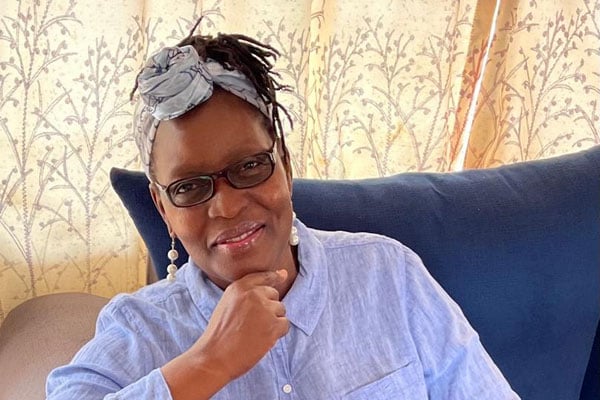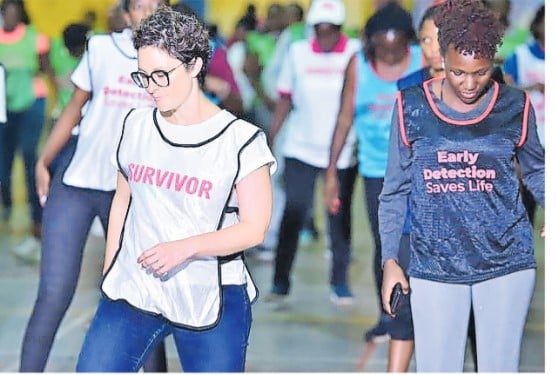
The vice chancellor of Muteesa 1 Royal University, Vincent Kakembo.
Vincent Kakembo, the vice chancellor of Muteesa 1 Royal University is an educationist and a passionate researcher. He graduated with a honours in education and Bachelor of Sciences at University of Fort Hare in South Africa, Msc at Rhodes University in Grahamstown and a PhD in space science. He spoke to Monitor in an interview:
What does your job entail?
Overseeing the smooth running of the entire institution. I have to see that everything is running in the right direction in regard to the pillars that govern the university.
I have to ensure that teaching and learning takes place the way it is supposed to be, ensure that all the programmes that are run are accredited by the National Council for Higher Education and make sure there is community engagement because when you are doing your research in the evolving industry and business, it means that your interaction with the community becomes quite strong.
What professional ethics anchor your career?
I have a value system in place. I have a cross-section of people to work with across the spectrum and some are of a very high-ranking calibre; people with PhDs and so on. Then, inclusivity. A good example is the charter that we have just attained as a result of teamwork.
How important or crucial is it for a university to get a charter?
A charter signifies that you meet the requirements, and the academic standards as set up by the National Council for Higher Education; staff with the correct qualifications in terms of quotas, infrastructure, have the right equipment compared to those of the public or government-funded universities.
When you have a charter, you get recognised nationally and internationally. You become eligible for funding, mainly research funding or getting into partnerships.
What nuggets do you share with those that you mentor?
One has got to build confidence in themselves, define their goals quite clearly then work tirelessly to achieve them. Do not be over-ambitious. Start with the small things and then that is the basis upon which you will be building much bigger things.
What has been your biggest career failure?
Aas far as I am concerned, I have had divine intervention all through. I have seen myself succeed all through and I have been lucky that whatever I have laid my hands on works.
I can speak Luganda, English, and Swahili because I worked in Kenya for quite some time. Then I speak Nguni, which is a combination of Xhosa and Zulu. I found it easy to learn because it is essentially a Bantu-oriented language.
Apart from academics, what else defines you?
I am into a lot of community work, especially in Church. I belong to a Catholic Men’s League, and in the community, there is an organisation, Saint Vincent De Paul, which is meant to support the poor in many respects; the homeless or people who cannot afford food.
If you were made the minister of education, what would you change about the sector?
That is a very interesting and difficult question. I would ensure that we as a ministry put the education system of the country into one that is quite responsive to the needs of the country; a very relevant curriculum, and also make sure that the system is more Afro-centered rather than what we call Euro-centred, which focuss on what is quite irrelevant to the needs of e Africans.
Then also depending on the resources the country has, we would welcome free education but I would not do that at the expense of the quality of education. I was wrong to think that when resources are well harnessed and mobilised, we would be a country in a position to support the poor in their educational endeavours.
We have seen it work, the government here in Uganda offers free education which is already a noble undertaking but what has overtaken us here is that everything has become highly commercialised, in that people do not know what they can benefit from as individuals. An example is when I was still in South Africa, I would come to Uganda quite often to do research work in rural areas such as Mt Elgon or rather even here in Buganda, Rakai District.
There are rocks that interested me a lot, but you would find a government school with reasonable infrastructure, a solar panel, buildings and so on but never find it empty and you would find one that is dilapidated or grass-thatched in the neighbourhood and it is overpopulated.
What is on your wish list?
For the last 35 years, I have worked for highly resourced institutions that even when people from Europe came to South Africa, they were amazed at the kind of institutions that were there.
I would like to shape Muteesa 1 Royal University into a university of my past desire, into what I have seen a university looks like.
That is a very intricate process that will require lots of resources, but we have to sort of support the one that we will need to build an institution to that level.
It means that it is a highly-challenging and involved process. Whoever comes after me should find an institution that is on track in terms of getting to the levels that we desire, and I am sure that is what I will achieve.
The structures that you see here, are kingdom structures; these had been confiscated by the Central Government during Amin’s time and this has been converted into an Army Barracks.
You see structures that are a branch of the university but now we can talk from a point of strength, the university is now in a position to start putting up structures with all the space that we have here.
The plan is to put up an administrative block; six to seven stored and that can be the starting point, a place where you have conference rooms, you have got chambers for your council and senate and so on, offices for quite a number of your top management, staff, deans of Faculty and so on and from that then you can start growing these small ones and that is possible. So, that is my central wish at the moment.
FREE EDUCATION
Then also depending on the resources the country has, we would welcome free education but I would not do that at the expense of the quality of education. I was wrong to think that when resources are well harnessed and mobilised, we would be a country in a position to support the poor in their educational endeavours.







